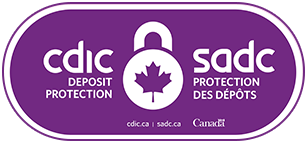Doctors, lawyers and dentists just like everyone else
TORONTO, Feb. 23, 2016 /CNW/ – High income earners such as doctors, lawyers and dentists are often perceived as ‘rich’ and lucky to experience a comfortable, financially stress-free retirement.
Yet, according to Mac Killoran, Tax Partner, Fruitman Kates LLP Chartered Accountants, this is not always the case. Professionals are just as likely to encounter money troubles late in life and he’s seen this with his own clients.
“I see it quite often, where high income earners sell their practice and retire, but still spend money as if they are earning peak salary, which can lead to an erosion of their capital and ultimately financial troubles,” states Mr. Killoran.
In fact, investments often can’t provide enough money to allow retired professionals to enjoy the lifestyle to which they are accustomed, notes Mr. Killoran. Then, if they allocate money to helping adult children financially it also deals a blow to finances. That’s why some of his clients are left with the sole option of tapping into the equity of their homes to improve finances.
“What some of my clients don’t realize is that helping their adult children with a loan from their professional corporation leads to personal tax implications,” he explains. “And so it’s another hit. Often, their only recourse is to obtain a reverse mortgage.”
Mr. Killoran has worked with clients who owe from $300,000 to $400,000 in taxes to Canada Revenue Agency due to poor planning and/or handling of finances.
Here, Mr. Killoran provides his top tips on how professionals can avoid debt late in life:
- Have the difficult conversations before retirement on cash needs, budgeting and ensuring that your capital can support your lifestyle.
- Understand the implications of withdrawing capital from a professional corporation prior to doing so by consulting with your accountant and investment advisor.
- Be prepared to say ‘no’ to your kids or your spouse when it comes to money and spending.
“Older Canadians from all socio-economic groups experience financial challenges. It’s not uncommon for us to work with high net worth individuals, professionals and business owners. Almost all want to remain in their homes and communities as they age. Through a reverse mortgage they can utilize the equity in their homes to fund retirement on their terms and continue to live in a familiar environment – which in most cases is the family home,” states Yvonne Ziomecki, SVP, HomeEquity Bank.
HomeEquity Bank, the only Canadian bank working exclusively with seniors, helps elderly people remain in their homes through itsCHIP Reverse Mortgage and Income Advantage solutions (www.chip.ca). Seniors can supplement their income via reverse mortgage through monthly or lump sum payments.
About HomeEquity Bank
HomeEquity Bank is a Schedule 1 Canadian Bank offering the CHIP reverse mortgage solution www.chip.ca. It was founded 30 years ago as an annuity based solution addressing the financial needs of Canadians who want to access the equity of their top asset – their home.
SOURCE HomeEquity Bank 
For further information: or to interview Mac Killoran or Yvonne Ziomecki, please contact: Teresa Donia, iAMBIC Communications, teresa@iambic.ca, 905-508-5550; Yvonne Ziomecki, Senior Vice President, Marketing and Sales, HomeEquity Bank, yziomecki@homequitybank.ca, 647-723-6812
